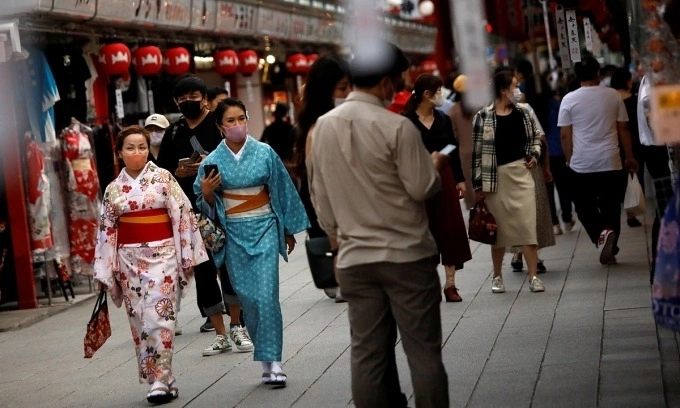By Hoang Vu  August 4, 2025 | 03:21 pm PT

Kimono-clad tourists walk along Nakamise Street at Asakusa district, a popular sightseeing spot in Tokyo, Japan, Oct. 13, 2020. Photo by Reuters
A Hong Kong couple was recently denied entry to Japan after immigration officers questioned their repeated use of the country’s 90-day visa-free policy.
The couple had entered Japan multiple times, each time staying the full 90 days allowed for Hong Kong passport holders under the visa-free policy.
During their most recent visit last month, they were stopped at immigration where officials flagged their extended stays and questioned their reasons for visiting, Dimsum Daily reported.
During routine questioning, the couple reportedly stated that they owned a property in Japan and used it as a residence, prompting authorities to deny them entry and place them on a return flight to Hong Kong.
The incident was shared online by a netizen who claimed to have a friend working as a translator at Japan’s Immigration Bureau.
The case has ignited online discussion, with some arguing that the couple had not violated any laws, since they never exceeded the legal 90-day limit per visit, The Standard reported.
Others pointed out that immigration officers have the discretion to refuse entry if they suspect someone is using repeated short stays to live in Japan without a proper visa.
Several commenters shared similar experiences of being questioned at Japanese immigration, even without staying the full 90 days.
According to the Japanese Consulate in Hong Kong, holders of Hong Kong passport are allowed visa-free stays of up to 90 days for tourism, short-term business, or visits to friends and family. Earning income or engaging in any paid work is strictly prohibited.
Legal experts familiar with Japanese immigration law said the visa waiver program is intended for short-term visits only. Japan does not offer residency rights in exchange for property ownership, unlike certain countries with investment visa schemes.
They emphasize that declaring a property as a residence while entering on a tourist visa is a red flag, as it contradicts the purpose of the visit, according to Travel and Tour World.
The case highlights the increasing scrutiny by immigration authorities worldwide on individuals who appear to use tourist visas for de facto residency.
Experts advise that those wishing to stay in Japan long-term should apply for an appropriate visa—whether for work, study, or investment—rather than relying on repeated tourist entries.

AloJapan.com